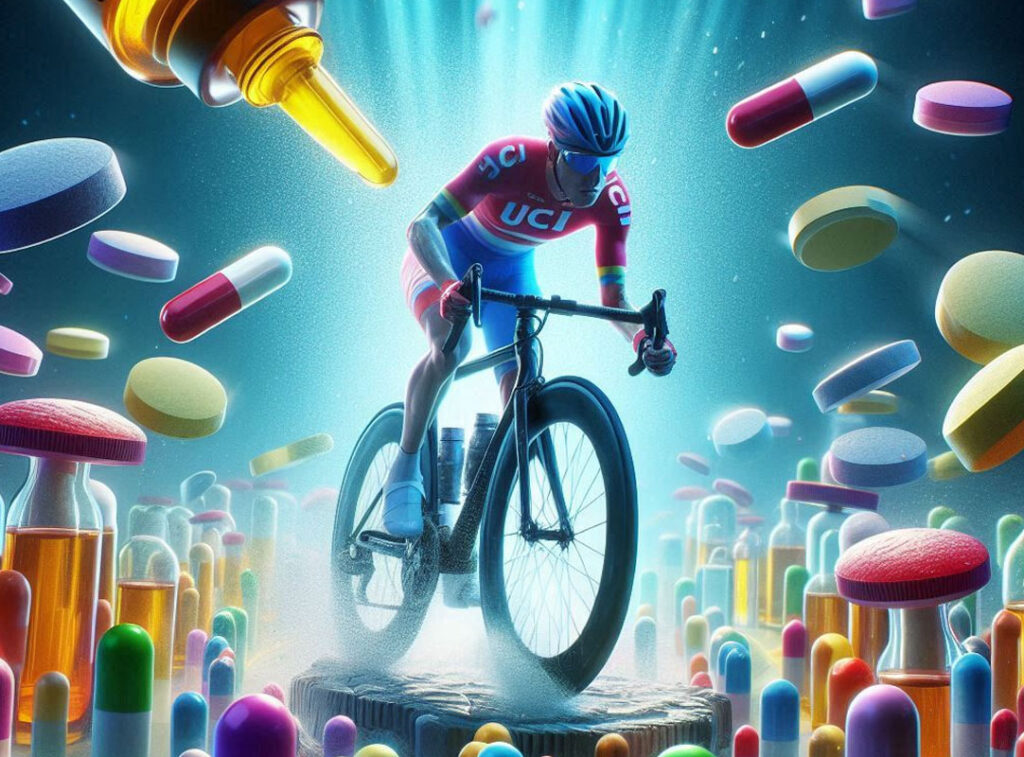The Union Cycliste Internationale (UCI) has raised alarms about a potent new painkiller that could potentially be misused by professional cyclists to mask fatigue during races. The governing body has reportedly informed representatives of pro cycling teams about the drug, described as “ten times more powerful than tramadol.”
According to the Swiss newspaper Le Temps, the drug in question is tapentadol, a powerful painkiller typically prescribed for severe osteoarthritis or bone cancer. The UCI’s concerns have been escalating over recent months, leading to a request for the World Anti-Doping Agency (WADA) to monitor the substance since the end of 2023, in anticipation of a potential future ban.
In a proactive move last month, the UCI reportedly alerted riders, teams, and race organizers about the risks associated with tapentadol. The governing body emphasized the need for further analysis but underscored the drug’s significant potency, which could make it a tempting alternative to tramadol for cyclists seeking to dull pain and push through fatigue during competitions.
The Movement for Credible Cycling (MPCC) has called for an immediate ban on tapentadol, citing its powerful painkilling properties as a dangerous means of performance enhancement. There are also concerns about the drug’s side effects, which include reduced alertness, dizziness, and drowsiness, potentially increasing the risk of crashes during races. Tapentadol, introduced by the German pharmaceutical company Grünenthal in 2011, is generally reserved for treating extreme pain conditions.
While the UCI claims tapentadol is “ten times more powerful” than tramadol, a 2012 study published in Expert Opinion on Pharmacotherapy suggested it might be “two to five times more powerful.” This discrepancy highlights the need for further research to fully understand the drug’s impact and potential for abuse in cycling.
Roger Legeay, president of the MPCC, stressed that healthy athletes have no need for such potent therapeutic products. “An analgesic reduces or eliminates pain, which can improve performance. It took us twelve years to ban tramadol. This time, we hope the proceedings will be faster,” Legeay stated.
Tramadol was banned in 2019, and subsequent UCI testing at WorldTour events returned negative results. However, the issue resurfaced in 2022 when Nairo Quintana was disqualified from the Tour de France after testing positive for tramadol. Despite losing his sixth-place finish, Quintana was not banned from competition and participated in the World Championships later that year.
The debate over painkillers in cycling gained further traction in 2017 when retired cyclist Michael Barry accused Team Sky of unethical medication practices during his tenure with the team. Barry, who admitted to doping while with the United States Postal Service (USPS) team, expressed concerns specifically about tramadol use.
As the cycling community grapples with these developments, the UCI’s vigilance and the MPCC’s advocacy highlight the ongoing battle against performance-enhancing drugs in the sport.


